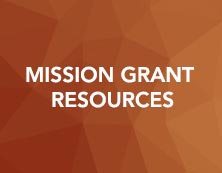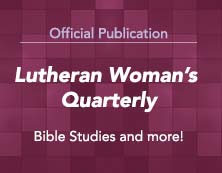A printable PDF can be found at the end of this article.
Training and Resources for Zone Leaders
A Revision of ZOOM
PICTURE THIS …
You have been asked to plan the next LWML zone gathering hosted by your group. There are many details to decide: speaker, meals, decorations, Bible study leader, Gifts from the Heart, and much, much more. But where do you start? How do you decide what to do to make a gathering that will be meaningful to women in their walk with their Lord?
The Planning Zone has been compiled as a resource to assist leaders at the zone and group levels so they can:
- understand the organization of the LWML and “how it works;”
- be guided and inspired as they fulfill their leader role;
- identify key components of a zone/group event;
- lead and participate in a business meeting; and
- be empowered with resources for completing the leader tasks.
Please be sure to read through Section One, “How LWML Works,” so that you have a better understanding of our organization before you delve into planning, learning, and serving. May God bless you as you serve Him with gladness.
Table of Contents
Section One: How LWML Works
- Primary Targets, Mission Statement, Organizational Goals
- Definition, Purpose, and Objective of Zones
- The Planning Process: Set the Focus
Section Two: Hosting an Event
- LWML Zone Event Guidelines for Host Groups
- LWML Zone Guidelines for Hosting Special Guests
- Plan for Publicity
Section Three: Leading a Meeting
- Sample Agenda for a Rally
- Sample Agenda for a Board Meeting
Section Four: So, You’re a Leader
- Important Deadlines for Zones
- Communication is Vital
Appendix: Online Resources (free downloads)
Section One: How LWML Works
The Mission Statement
As Lutheran Women in Mission, we joyfully proclaim Christ, support missions,
and equip women to honor God by serving others.
The LWML Mission Statement tells us what we are to do as leaders in the LWML. However, it is essential for us to know more about the organization of LWML in order to do this effectively in our districts, zones, and groups. The following pages are your guide to a better understanding of how LWML works and what section you can use to help others to Serve the Lord with gladness! (Psalm 100:2).
The Vision Statement
The LWML is the leading group for LCMS women where each woman is welcomed and encouraged to use her unique God-given gifts as she supports global missions and serves the Lord with gladness.
Primary Targets and Organizational Goals
In order to better fulfill the Mission Statement, the LWML Board of Directors creates Primary Targets and updates them every two years. These Primary Targets are to be used for planning at the national, district, zone, and group level.
Using these Primary Targets, district leaders evaluate and set organizational goals for the mission of the district to be utilized by zones and groups as they plan. Activities should be planned that will make the goals become a reality. Take time at each leadership meeting to evaluate how well the goals are being met.
The current Primary Targets can be found at www.lwml.org.
For more information about the definition, purpose, objectives, and mission of zones, please check the Appendix, search for the LWML Handbook online at www.lwml.org, or contact your district president.
Definition, Purpose, and Objective of Zones
DEFINITION OF ZONES
A zone consists of groups and individual members in the same geographic area united to promote the objects of the Lutheran Women’s Missionary League – mission education, mission inspiration, mission service, and mission grants.
PURPOSE OF ZONES
Zones are important in:
- forging a link in the relationship of the group to the district and the LWML;
- serving as a forum for disseminating information regarding LWML grants, resources, and programs;
- providing opportunity for spiritual development and leader training;
- offering Christian fellowship and mutual encouragement;
- providing opportunity for sharing ideas among the groups;
- offering programs through which women may participate in servant events and gospel outreach activities; and
- providing voting representation to national LWML conventions.
Additional purposes may include:
- serving as hosts for district conventions;
- monitoring, mentoring, and encouraging groups;
- selecting and sponsoring Young Woman Representatives to district conventions;
- providing opportunity for women not affiliated with LWML to become acquainted with the vision and purpose of the organization; and
- strengthening the LWML organization as a whole.
OBJECTIVE OF ZONES
Zones are pursuing new and innovative ways to:
- promote the plans, programs, and products of the LWML;
- assist and inspire women of diverse ages, ethnic groups, and social groups in their walk of faith;
- reach out in love to meet special needs in their communities; and
- encourage support of national and district mission grants.
Group and individual members of a given zone are:
- actively and enthusiastically participating in zone functions;
- recognizing and realizing that zones are designed to be important, dynamic, Spirit- driven links in the LWML structure; and
- eagerly serving as informed, committed leaders having a living relationship with their Lord and Savior and a love for LWML.
PURSUING THE MISSION
There are myriad ways and means through which zones can and do fulfill the purpose for which they are intended.
The basic function of zones is to:
- sponsor regular zone functions – rallies, workshops, retreats, etc.;
- provide representation to LWML conventions;
- represent zones on district board of directors;
- sponsor Young Woman Representatives to district conventions, depending on district bylaws; and
- link groups to districts by dissemination of information.
An effective zone:
- realizes the importance of, and then implements, advanced and detailed planning, and also initiates informative, timely publicity;
- is familiar with, utilizes, and encourages groups and individual members to use materials available through the LWML;
- makes concentrated efforts to help each group and individual member grow in her relationship to the Triune God, resulting in a greater desire to serve and reach the lost;
- seeks an increased awareness of the strengths and challenges of its membership;
- strives to utilize the strengths of its members by involving and encouraging individuals and groups in leadership positions, event planning, or programming, etc.
- offers stimulating, Christ-centered Bible studies, programs, retreats, or workshops that speak to specific groups, concerns, or current items of interest;
- provides leader training opportunities;
- researches surrounding communities with an eye for how the zone can share Christ through gathering gifts of love, engaging informative speakers, or hosting community servant events;
- promotes the mission grants adopted at national and district LWML conventions through offerings and possible fund-raising endeavors;
- is innovative and bold in its planning, not hesitating to try something new and different;
- encourages attendance of all women by providing handicap accessibility, urging groups to offer carpooling, and having convenient meeting times; and
- always encourages involvement of women outside the LWML circle.
Be devoted to one another in brotherly love. Honor one another above yourselves. Never be lacking in zeal, but keep your spiritual fervor, serving the Lord (Romans 12:10–11 NIV).
The Planning Process: Set the Focus
-
Pray for wisdom and guidance as you plan your upcoming event.
… the holy Scriptures, which are able to make you wise for salvation through faith in Christ Jesus. All Scripture is God-breathed and is useful for teaching, rebuking, correcting and training in righteousness, so that the servant of God may be thoroughly equipped for every good work (2 Timothy 3:15b-17 NIV).
Be devoted to one another in brotherly love. Honor one another above yourselves. Never be lacking in zeal, but keep your spiritual fervor, serving the Lord (Romans 12:10-11 NIV).
-
Review the LWML Mission Statement, the Vision Statement, Primary Targets, and organizational goals.
-
Set a purpose statement for the event.
Brainstorm and determine the desired outcome of the work or event. Note and value each committee person’s opinion. The list might include the hope that participants will:- experience growth in their Christian faith;
- become more mission-minded;
- have their hearts opened and be receptive to participating in mission service;
- develop and nurture Christian friendship;
- receive motivation and mentoring necessary for becoming leaders of tomorrow; and
- develop “mission eyes” that are open to recognizing and discovering mission opportunities locally and globally.
-
Determine the target audience.
What group of people, situation, or circumstance is to be impacted, changed, or motivated by the work or event being planned by this committee? Some possibilities are:- all or specific women (e.g. mothers who work outside the home) of the local congregation or community;
- current and/or potential group or zone leaders;
- women of diverse ethnic groups;
- sisters in Christ in need of Christian friendship and fellowship; and
- local, state, national, or global group(s); or needs which provide Gospel outreach, mission service, or possible mission grant recipient opportunities.
-
List desired outcomes.
Include activities the attendees would be prepared to do at or after the event.
Section Two: Hosting an Event
After setting the focus, it’s time to start planning!
THINGS TO CONSIDER
-
Know and believe this event is important.
There are women in your zone whose only exposure to LWML is on the group and zone level – make it special!
-
Start planning well in advance.
In order for an event to be well-organized and well- publicized, a year’s advance planning is ideal. Good speakers are in demand, so it’s important to book them early. Bible study leaders appreciate time to pray and prepare.
-
As a board or committee, determine the goal and theme of the event.
Determine whom or what circumstance to target, the objectives to be achieved by this event, and the desired outcome – see convention manuals for goal/objectives.
-
Consider available facilities when planning an event.
If a screen and projector, a microphone, TV or internet connection will be needed, are they available? If breakout rooms are in the plans, can the facility accommodate this request?
-
An informal setting may be more conducive to interaction than a church sanctuary.
If round tables are an option, they lend themselves to group interaction much more favorably than church pews. For ice breakers or mixers, it is great to have room to move around. In other words, a setting that promotes freedom for fellowship is preferable.
-
Good advance publicity is a must!
Intentionally market the event!
-
Make sure everyone knows her/his responsibility.
If groups or individuals are to be responsible for certain areas (registration, name tags, program printing, door prizes, refreshments, devotions, etc.), see that they are notified of their detailed duties and applicable deadlines. Do a follow-up check so there are no last-minute surprises. Speakers should be clear on the time allotted to their presentation.
-
Develop an evaluation process.
Formulate an evaluation questionnaire stating the goals and objectives, giving those in attendance an opportunity to rate the event. Always provide a space for comments and for suggestions for future events.
- Zone Event Ideas are available at www.lwml.org/posts/leadership/lwml-event-planning-timeline
LWML Zone Event Guidelines for Host Groups
- Prepare and print a program booklet to include:
- theme, logo, and theme Bible verse selection (may be selected by zone executive committee or host group);
- program agenda;
- songs for the day (ensure that proper legal permission has been secured);
- LWML pledge and LWML song;
- names and contact information of zone executive board members;
- special guest biographies; and
- table prayer (optional).
- Provide a table and several chairs for officers at the front of the assembly, along with a podium and a microphone.
- Check with zone president well in advance to determine what equipment or help with equipment is needed for speaker, presenters, etc. (e.g., TV with DVD player, projector). Be sure that someone attending the event knows how to operate all electronic equipment and pre-tests them if possible.
- Provide registration table and personnel to register members and guests.
- Have sign-up sheets for each group in the zone with columns for members, guests, and pastors; plus one sign-up sheet for all other guests (community, congregations not having a group, district LWML representatives, speakers, etc.), and one for individual members. These will be used to determine credentials and attendance.
- Provide nametags with pins if not self-adhesive. Nametags may be custom- made to coordinate with event theme if desired.
- Provide dark pens or fine-tipped markers for nametags.
- Hand each attendee a program and give opportunity to sign up for door prizes as appropriate.
- Collect registration fees if it is the zone policy. Handle as instructed by zone treasurer.
- Assign hostesses who will welcome guests as they arrive, acquaint them with the restroom facilities and refreshment table if food is served, and direct them to the registration table.
- Staff the refreshment table, if available.
- Encourage all host group members to mingle and mix with the guests.
- Prepare and serve a light meal if this is the policy of the zone. Set up tables for the meal with favors and/or decorations, if desired.
- Have three or four women serve as ushers to receive and count the offering (zone treasurer may want to be included in the counting process) and be available to distribute any handouts. Offering monies should be kept separate from the registration fees.
- If Gifts from the Heart will be gathered, the host group is responsible for a place to receive and display the gifts and may be responsible for the delivery of the items.
- Registration fees are often charged at zone events to cover the costs of the host group. These costs include program booklets, nametags, registrations sheets, table favors, refreshments, and luncheon.
- If voting is to take place (especially elections), the host group registrars should provide a credentials report. The credentials report should include:
- number eligible to vote (LWML members as defined by the district and zone);
- number of special guests;
- number of other guests;
- number of pastors; and
- total number in attendance.
- Although it was the practice of some LWML groups to offer child care at past LWML events, the LWML Board of Directors and Presidents Assembly have included the following as a non-policy in the LWML Standing Policies: Due to the complex nature of state, county, and local child care provider regulations, LWML is unable to provide guidance to districts or others who would like to provide child care services at LWML events. For this reason and the potential liability issues, LWML does not recommend offering child care. We instead support family-friendly events or other alternatives.
LWML Zone Guidelines for Hosting Special Guests
When hosting a special guest, certain rules of etiquette should be observed.
- The presentation time limit on the agenda and the presenter’s honorarium or gift should be determined by the zone executive committee prior to the event and clearly communicated with the speaker.
- When the guest is traveling from out of town, consider the following items:
- A hostess should be assigned to all special guests. An exchange of phone numbers between the hostess and guest should be facilitated at least a week before the event.
- If flying, a hostess should meet the guest at the airport. Arrange for the hostess to provide transportation to all off site events and lodging, as well as to return the guest to the airport at least two hours before flight time.
- If driving, furnish a detailed map giving accurate directions to the desired destination.
- If overnight accommodations are required, give the guest the option of staying in a local motel (zone covers cost) or in someone’s home. The guest may have a busy schedule and would welcome the opportunity to work in a motel setting. If staying in someone’s home, be sure privacy is provided.
- Assign a hostess to the special guest at the event to:
- assist the guest in becoming familiar with the surroundings;
- make certain all necessary props are available and in place;
- offer assistance in any way needed; and
- introduce the guest to other women and pastors.
- Special guests:
- do not pay registration fees;
- are served first at meals; and
- should be made to feel welcome and comfortable.
Find more resource tips at www.lwml.org/posts/leadership/lwml-event-tips.
Plan for Publicity
A zone event can be well-planned and include activities that many would enjoy, but if members do not know the details, few will be there. Events should be planned several months in advance in advance. It is advantageous if the next event can be announced and publicized at the previous event.
Posters, bulletin inserts, newsletter and/or bulletin blurbs, and notices to all groups and churches (even those not having an active LWML group) should be sent at least two months before the event.
Assign someone to advertise the event on social media for several days before the event.
Information should include:
- day, date, and time (beginning and approximate ending times);
- location and a map or directions;
- program theme;
- name and credentials of speaker or presenter;
- registration fee (if any);
- meal plans and cost;
- any items to be brought by participants (Bibles, Gifts from the Heart items, etc.);
- deadlines for notifying host group of how many will be in attendance if requested, including pre-registration fees if required; and
- chairman or registrar contact information if any requests such as program participation is included.
If a community outreach or program theme is planned, notices in local news media might be appealing to visitors. Be bold in inviting women outside of LWML and/or the church.
Remember that the best way to draw women to your event is to personally invite them, one-on-one. Offering to pick them up in your car or setting up a carpool ensures that no one will need to participate in the event alone.
Section Three: Leading a Meeting
The agenda for a zone presiding officer needs to be streamlined, but still provide all the components to conduct business in an orderly fashion. Outlined below are two different agendas that can be adapted for use.
Sample Agenda for a Zone Meeting
-
Relax, take a deep breath and smile at your audience!
Say a little prayer and trust Him to guide you.
-
Call to Order
The president stands and shares a welcoming statement – the women love to have a personal connection.
-
Opening Devotion
This is usually done by a zone pastoral counselor or the host pastor. Some zones may like to have a welcome from the host group at this time with instructions for breaks (if scheduled), location of restrooms, etc. An invitation may be given by the host group for the next zone event.
-
Roll Call
Roll call is taken care of by the zone secretary using the sign in sheets provided by the registrar and recorded in the minutes.
-
Approval of Minutes
The minutes of the previous meeting should be sent to each group president and are shared with each group before the meeting to save the time for reading the minutes aloud. The presiding officer will ask if there are any additions or corrections. The minutes are approved as presented or approved as corrected.
-
Reports of Officers
- The secretary may read correspondence not requiring action (if there is any). The name of sender should be read first. If correspondence is lengthy, a summary of the contents should be given by the secretary.
- The treasurer should have a printed financial report. The presiding officer can ask if there are questions concerning the report. The report will be filed for review.
- If other officers have reports, they are called on at this time. If action is needed, the officer does not move implementation. Another member can make such a motion following the officer’s report or the secretary can “on behalf of the executive committee, move to (implement the recommendation).”
-
Reports of Standing Committees
- The presiding officer can say that the report of the ______ committee is received as read or printed. (When no action is necessary, reports of committees may be printed and placed in a packet for groups to take with them. The chairman can just make reference to the report; it does not need to be presented in its entirety at the time of the meeting.)
- When a committee report contains a recommendation, the committee chairman moves adoption and no second is needed. The president repeats the motion to make sure everyone understands the proposed action, and discussion begins immediately. To bring to a vote, the president says, “If there is no further discussion, we will vote on the motion.” The motion is repeated by the president. Those in favor of adopting the motion as stated are asked to respond by saying “aye;” those opposed are to say “no.” The recommendation is said to be “adopted” or “the recommendation fails.”
-
Reports of Special Committees
- Announced only if the special committees are prepared or instructed to report.
- Should action be necessary from a special committee report, it is handled as standing committee reports above.
-
Unfinished Business
Unfinished business is business that is carried over from the previous meeting. Unfinished business is never referred to as “old business.”
-
New Business
New business topics might include elections, funding of a delegate, future activities, or correspondence requiring action, etc.- Most new business will be brought by the executive committee, asking the secretary to bring the recommendations to the floor.
- For elections, the nominating committee announces or introduces the slate, but the president presides at the election.
- There should be a motion on the floor before discussion starts, unless the group agrees to have informal discussion before a motion is formulated.
-
Program
The program can be presented at any time during the meeting.
-
Announcements
Any necessary announcements from the chair or from the assembly can be given at this time.
-
Closing Devotion
-
Adjournment
Any special instruction for lunch, etc., can be given at this time by the host group.
Business meetings should be as brief as possible while still making sure members are well informed. Being well-organized and having as much as possible printed for distribution (or emailed) beforehand will help facilitate this goal. Remember to call on officers, and/or committees only when action is needed, or when an oral report, rather than a printed report, is considered necessary. To minimize zone expense, one copy can be put in a packet for each group and the group is responsible for sharing the information with their members.
Sample Agenda for a Board Meeting
-
Call to Order
-
LWML League Pledge
-
Devotion
-
Roll Call and Minutes of Previous Meeting
NOTE: Minutes do not need to be read at the meeting – all group representatives should have received the minutes via email or mail.
-
Reports
- President
- Vice President(s)
- Secretary
- Treasurer
- Pastoral Counselor
- Committees
-
Unfinished Business
-
New Business
-
Motion to Adjourn
-
Closing
To download additional helps on parliamentary procedure, go to the LWML Handbook at www.lwml.org/posts/leadership/leader-development-and-training-tools.
Section Four: So, You’re A Leader …
Zone leaders need to be aware of deadlines and communication considerations and strive to exhibit excellent leadership qualities.
Important Deadlines for Zones
It will be helpful for all zone leaders to review this compiled list of deadlines and to be aware of other month-to-month deadlines applicable to their zone so that nothing is forgotten. The deadlines listed for publicity and planning are only suggestions and may need to be altered for each group.
DEADLINES FOR ZONE PRESIDENT
Three months before zone event
As publicity is being developed, be sure all information is accurate.
Two months before zone event
Publicity should be in place. Confirm all arrangements with speakers or special guests.
Four or five weeks before zone board of directors (BOD) meeting
Correspond with anyone who has responsibilities for BOD meeting.
Four weeks before zone BOD meeting
Send call to BOD meeting.
At a zone event
(which event depends upon how frequently and the time of year district conventions are held)
Per bylaws, elect zone delegate(s) and alternate(s) to district convention if needed; select Young Woman Representatives to district convention, if needed. (Be aware of your district’s procedure and deadline to submit names for district Young Woman Representatives(s) to the national LWML convention.)
At fall zone event of even-numbered years
Elect delegate(s) and alternate(s) to the national LWML convention if district bylaws require.
Immediately following fall zone event in even- numbered years
Report to district president the names of delegate(s) and alternate(s) to LWML conventions.
Immediately following any zone event
Complete and send district president a report of zone activities.
Two or three months before zone election
Appoint nominating committee unless zone bylaws stipulate otherwise.
September 1 of even-numbered years is the deadline for submitting mission grant proposals for the LWML convention
Remind groups and individual members of this date.
Note district deadline (month and day) for submitting mission grant proposals for district LWML convention
Remind groups and individual members of this date, and offer assistance in completing paperwork.
Immediately following end of treasurer’s term
Appoint a financial review committee.
DEADLINES FOR ZONE SECRETARY
Within 30 days following a zone business meeting
Send minutes of the zone BOD meeting or other zone business meetings to zone officers, group presidents, district president, and to others as directed by zone bylaws.
Immediately following election of officers
Send names and contact information of newly-elected officers to district president or district officer stipulated by district policy.
Find the LWML Event Timeline Worksheet at www.lwml.org/posts/leadership/lwml-event-planning-timeline.
Communication is Vital
Communication is vitally important to any relationship if it is to be healthy, proactive, and satisfying.
For a zone to be vibrant, well-informed and productive, clear communication lines should be maintained:
- among the officers and committee chairmen of the zone (as necessary) to:
- keep everyone updated on events, activities, and zone news;
- be accountable to each other for assigned tasks;
- answer questions as they arise;
- give assistance to each other as necessary; and
- form a closer bond as a team, building each other up while working toward a common goal.
- between each zone officer/committee chairman and her district counterpart (twice a year) to:
- receive information to be passed on to groups;
- receive help and direction in fulfilling the duties of any particular position;
- ask for clarification on any given issue;
- become better acquainted as LWML sisters, appreciating the challenges of one another’s position and encouraging each other; and
- strengthen the organization by nurturing district/zone relationships.
- between each zone officer/committee chairman and her group counterparts (monthly) to:
- strengthen groups in any way possible;
- encourage group leaders in their particular office or committee;
- tactfully give advice and assistance when necessary or requested;
- listen with ears tuned to potential issues or frustrations;
- be alert to successes, asking permission to share these ideas with others; and
- encourage attendance at zone functions.
Using email for regular contact makes communication relatively easy. For those who do not have internet access, a telephone call is probably the next best means of communication. Of course, using the U.S. Postal Service is always an option.
Check email at least once a day; reply immediately. If you need to research an answer, acknowledge that the mail was received and let the sender know that a detailed reply will follow soon.
Open postal mail immediately and send a reply within three days.
Communication for planning will take place:
- at executive committee meetings;
- when zone officers meet to brainstorm and to set long-range goals;
- at administrative committee or board of directors meetings; and/or
- when zone officers, along with committee chairmen and a representative from each group (preferably the president), meet to discuss more detailed planning.
Representation from district to zone functions (at least once a year) is encouraged. The representative does not necessarily need to be the district president. It is healthy for zone members to be familiar with district officers and to hear from them personally as to what is happening on the district level. This also gives districts a picture of how zones are functioning and provides another opportunity to promote a feeling of unity between the district and the zone.
Appendix
Online Resources are available on the LWML website.
- Bible Study
- Christian Leaders Bible Study
- Christian Leaders Bible Study
- Devotion
- Powered for Confidence
- Powered for Confidence
- Brochure
- Event Planners and Guest Speakers
- Event Planners and Guest Speakers
- Sketches
- A Little Preparation Goes a Long Way
- A Willing Heart
- L-W-M-L, What Does that Mean?
- LWML Printables for Coloring
- Bookmarks
- Note Cards









